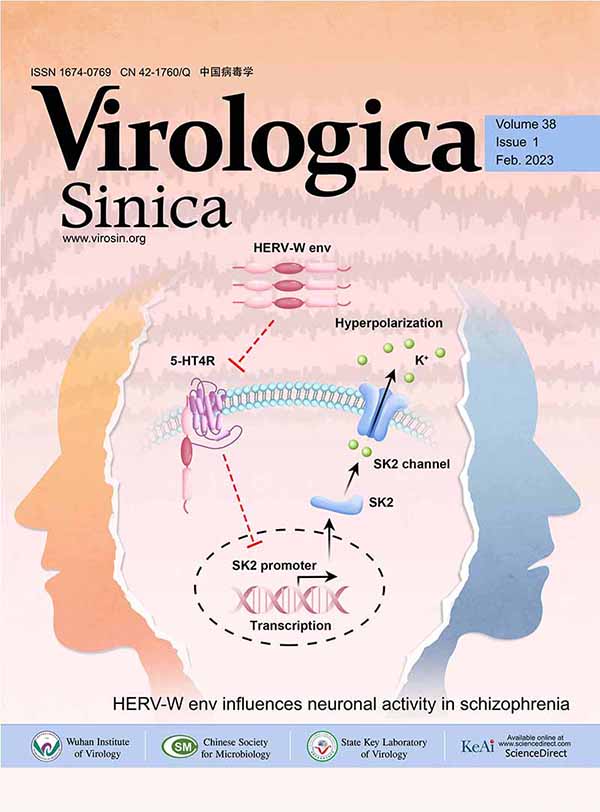-
Basit, A.W., Cho, M.-G., Kim, E.-Y., Kwon, D., Kang, S.-J.,Lee, J.H., 2020. The cGAS/STING/TBK1/IRF3 innate immunity pathway maintains chromosomal stability through regulation of p21 levels. Exp. Mol. Med. 52, 643-657.
-
Bedekovics, T., Hussain, S., Zhang, Y., Ali, A., Jeon, Y.J.,Galardy, P.J., 2021. USP24 Is a Cancer-Associated Ubiquitin Hydrolase, Novel Tumor Suppressor, and Chromosome Instability Gene Deleted in NeuroblastomaUSP24 Loss Causes Chromosome Instability and Cancer. Cancer Res. 81, 1321-1331.
-
Blasius, A.L.,Beutler, B., 2010. Intracellular Toll-like Receptors. Immunity, 32, 305-315.
-
Brown, M.C., Mosaheb, M.M., Mohme, M., Mckay, Z.P., Holl, E.K., Kastan, J.P., Yang, Y., Beasley, G.M., Hwang, E.S., Ashley, D.M., Bigner, D.D., Nair, S.K.,Gromeier, M., 2021. Viral infection of cells within the tumor microenvironment mediates antitumor immunotherapy via selective TBK1-IRF3 signaling. Nature Comm. 12.
-
Calistri, A., Munegato, D., Carli, I., Parolin, C.,Palù, G., 2014. The Ubiquitin-Conjugating System:Multiple Roles in Viral Replication and Infection. Cells, 3, 386-417.
-
Chathuranga, K., Weerawardhana, A., Dodantenna, N.,Lee, J.-S., 2021. Regulation of antiviral innate immune signaling and viral evasion following viral genome sensing. Exp. Mol. Med. 53, 1647-1668.
-
Chouri, E., Wang, M., Hillen, M.R., Angiolilli, C.,Rossato, M., 2021. Implication of miR-126 and miR-139-5p in Plasmacytoid Dendritic Cell Dysregulation in Systemic Sclerosis. J. Clinic. Med. 10, 491.
-
Chua, B.H., Phuektes, P., Sanders, S.A., Nicholls, P.K.,Mcminn, P.C., 2008. The molecular basis of mouse adaptation by human enterovirus 71. J. Gen. Virol. 89, 1622-1632.
-
Cong, H., Du, N., Yang, Y., Song, L., Zhang, W.,Tien, P., 2016. Enterovirus 71 2B Induces Cell Apoptosis by Directly Inducing the Conformational Activation of the Proapoptotic Protein Bax. J. Virol. 90, 9862-9877.
-
Cui, J., Song, Y., Li, Y., Zhu, Q., Peng, T., Qin, Y.,Wang, H.Y., 2014. USP3 inhibits type I interferon signaling by deubiquitinating RIG-I-like receptors. Cell Res. 24, 400-416.
-
Deng, M., Tam, J.W., Wang, L., Liang, K., Li, S., Zhang, L., Guo, H., Luo, X., Zhang, Y., Petrucelli, A.S., Davis, B.K., Conti, B.J., June Brickey, W., Ko, C.-C., Lei, Y.L., Sun, S.-C.,Ting, J.P.-Y., 2020. TRAF3IP3 negatively regulates cytosolic RNA induced anti-viral signaling by promoting TBK1 K48 ubiquitination. Nature Comm. 11, 2193
-
Fan, Y., Mao, R., Yang, Y., Liu, S.,Yang, J., 2014. USP21 negatively regulates antiviral response by acting as a RIG-I deubiquitinase. J. Exp. Med. 211, 313-28.
-
Feng, N., Zhou, Z., Li, Y., Zhao, L., Xue, Z., Lu, R.,Jia, K., 2017. Enterovirus 71-induced has-miR-21 Contributes to Evasion of Host Immune System by Targeting MyD88 and IRAK1. Virus Res. 237, 27-36.
-
Guo, Y., Li, R., Tan, Z., Shi, J., Fu, Y., Song, Y., Zhu, M., Zhang, L.,Huang, J., 2020. E3 ubiquitin ligase ASB8 negatively regulates interferon via regulating TBK1/IKKi homeostasis. Mol. Immunol. 121, 195-203.
-
He, H., Yi, L., Zhang, B., Yan, B., Xiao, M., Ren, J., Zi, D., Zhu, L., Zhong, Z.-H., Zhao, X., Jin, X.,Xiong, W., 2021. USP24-GSDMB complex promotes bladder cancer proliferation via activation of the STAT3 pathway. International J. Biol. Sci. 17, 2417-2429.
-
He, X., Ma, S., Tian, Y., Wei, C., Zhu, Y., Li, F., Zhang, P., Wang, P., Zhang, Y.,Zhong, H., 2017. ERU±negatively regulates type I interferon induction by inhibiting TBK1-IRF3 interaction. PLoS Pathog. 13.
-
Hou, F., Sun, L., Zheng, H., Skaug, B., Jiang, Q.X.,Chen, Z., 2011. MAVS forms functional prion-like aggregates to activate and propagate antiviral innate immune response. Cell, 146, 448-461.
-
Hung, H.C., Wang, H.C., Shih, S.R., Teng, I.F.,Tseng, C.P., 2011. Synergistic Inhibition of Enterovirus 71 Replication by Interferon and Rupintrivir. J. Infect. Dis. 203, 1784.
-
Jie, C., Huie, J., Andrea, M.N., Paul, B., Rivière, J., Zhiyong, L., Roger, C., Danyel, L., Wesley, T.,Jeremy, M., 2021. Inborn errors of TLR3- or MDA5-dependent type I IFN immunity in children with enterovirus rhombencephalitis. The Journal of experimental medicine, 218, e20211349.
-
Jing, L., Yi, L., Zhao, J., Yu, J.,He, M.L., 2012. Enterovirus 71 Disrupts Interferon Signaling by Reducing the Level of Interferon Receptor 1. J. Virol. 86, 3767.
-
Kawai, T.,Akira, S., 2006. Innate immune recognition of viral infection. Uirusu, 56, 1-8.
-
Khong, W.X., Yan, B., Yeo, H., Tan, E.L., Lee, J.J., Ng, J.K.W., Chow, V.T.,Alonso, S., 2012. A Non-Mouse-Adapted Enterovirus 71 (EV71) Strain Exhibits Neurotropism, Causing Neurological Manifestations in a Novel Mouse Model of EV71 Infection. J. Virol. 86, 2121.
-
Khoshnood, B., Ullgren, A., Laffita-Mesa, J., Öijerstedt, L., Patra, K., Nennesmo, I., Graff, C. 2021. TBK1 haploinsufficiency results in changes in the K63-ubiquitination profiles in brain and fibroblasts from affected and presymptomatic mutation carriers. J. Neurol. 1-13.
-
Kobayashi, K.,Koike, S., 2020. Cellular receptors for enterovirus A71. J. Biomed. Sci. 27, 1-12.
-
Lei, X., Liu, X., Ma, Y., Sun, Z.,Wang, J., 2010. The 3C Protein of Enterovirus 71 Inhibits Retinoid Acid-Inducible Gene I-Mediated Interferon Regulatory Factor 3 Activation and Type I Interferon Responses. J. Virol. 84, 8051-8061.
-
Lei, X., Sun, Z., Liu, X., Jin, Q., He, B.,Wang, J., 2011. Cleavage of the Adaptor Protein TRIF by Enterovirus 71 3C Inhibits Antiviral Responses Mediated by Toll-Like Receptor 3. J. Virol. 85, 8811-8818.
-
Lei, X., Xiao, X., Xue, Q., Jin, Q., He, B.,Wang, J., 2013. Cleavage of Interferon Regulatory Factor 7 by Enterovirus 71 3C Suppresses Cellular Responses. J. Virol. 87, 1690.
-
Li, J.A., Chen, Z.B., Lv, T.G., Han, Z.L.,Liu, P.P., 2013. Impact of endothelial nitric oxide synthase gene polymorphism on severity of enterovirus 71-infection in Chinese children. Clin. Biochem. 46, 1842-1847.
-
Li, Y., Schrodi, S., Rowland, C., Tacey, K., Catanese, J.,Grupe, A., 2010. Genetic evidence for ubiquitin-specific proteases USP24 and USP40 as candidate genes for late-onset Parkinson disease. Hum. Mutat. 27, 1017-1023.
-
Liu,M.-L., 2005. Type I interferons protect mice against enterovirus 71 infection. J. Gen. Virol. 86, 3263-3269.
-
Lu, J., Yi, L., Zhao, J., Yu, J.,He, M.L., 2012. Enterovirus 71 Disrupts Interferon Signaling by Reducing the Level of Interferon Receptor 1. J. Virol. 86, 3767.
-
Oliveira, S.A., Li, Y.J., Noureddine, M.A., Züchner, S., Qin, X., Pericak-Vance, M.A.,Vance, J.M., 2005. Identification of risk and age-at-onset genes on chromosome 1p in Parkinson disease. Am. J. Hum. Genet. 77, 252-264.
-
Qian, F., Langereis, M.A., Lork, M., Mai, N.,Kuppeveld, F.J.M.V., 2014. Enterovirus 2Apro Targets MDA5 and MAVS in Infected Cells. J. Virol. 88, 3369-3378.
-
Rasti, M., Khanbabaei, H.,Teimoori, A., 2018. An update on enterovirus 71 infection and interferon type I response. Rev. Med. Virol. 29, e2016.
-
Ren, Z., Ding, T., Zuo, Z., Xu, Z., Deng, J.,Wei, Z., 2020. Regulation of MAVS Expression and Signaling Function in the Antiviral Innate Immune Response. Front. Immunol. 11, 1030.
-
Shih, S.R., Stollar, V.,Li, M.L., 2011. Host Factors in Enterovirus 71 Replication. J Virol. 85, 9658-9666.
-
Thayer, J.A., Awad, O., Hegdekar, N., Sarkar, C., Tesfay, H., Burt, C., Zeng, X., Feldman, R.A.,Lipinski, M.M., 2020. The PARK10 gene USP24 is a negative regulator of autophagy and ULK1 protein stability. Autophagy, 16, 140-153.
-
Tian, Y.-M., Wang, M.-L.,Zhao, J., 2019. Crosstalk between Autophagy and Type I Interferon Responses in Innate Antiviral Immunity. Viruses, 11.
-
Wang, B., Xi, X., Lei, X., Zhang, X.,Zhao, Z., 2013. Enterovirus 71 Protease 2Apro Targets MAVS to Inhibit Anti-Viral Type I Interferon Responses. PLoS Pathog. 9, e1003231.
-
Wang, C., Ji, L., Yuan, X., Jin, Y.,Xing, Z., 2016. Differential Regulation of TLR Signaling on the Induction of Antiviral Interferons in Human Intestinal Epithelial Cells Infected with Enterovirus 71. Plos One, 11, e0152177.
-
Wang, H., Lei, X., Xia, X., Yang, C.,Lu, W., 2015. Reciprocal Regulation between Enterovirus 71 and the NLRP3 Inflammasome. Cell Rep. 12, 42-48.
-
Wang, K., Liu, S., Wang, J., Wu, Y., Cai, F.,Song, W., 2014. Transcriptional regulation of human USP24 gene expression by NF-kappa B. J. Neurochem. 128, 818-828.
-
Wang, L., Zhao, W., Zhang, M., Wang, P., Zhao, K., Zhao, X., Yang, S.,Gao, C., 2013. USP4 Positively Regulates RIG-I-Mediated Antiviral Response through Deubiquitination and Stabilization of RIG-I. J. Virol. 87, 4507.
-
Wang, S.-A., Young, M.-J., Wang, Y.-C., Chen, S.-H., Liu, C.-Y., Lo, Y.-A., Jen, H.-H., Hsu, K.-C.,Hung, J.-J., 2021. USP24 promotes drug resistance during cancer therapy. Cell Death. Differ., 28, 2690-2707.
-
Wang, Y., Tong, X.,Ye, X., 2012. Ndfip1 Negatively Regulates RIG-I-Dependent Immune Signaling by Enhancing E3 Ligase Smurf1-Mediated MAVS Degradation. J. Immunol. 189, 5304-5313.
-
Wang, Y.F.,Yu, C.K., 2014. Animal models of enterovirus 71 infection:applications and limitations. J. Biomed. Sci. 21.
-
Zeng, W., Sun, L., Jiang, X., Chen, X., Hou, F., Adhikari, A., Xu, M.,Chen, Z.J., 2010. Reconstitution of the RIG-I Pathway Reveals a Signaling Role of Unanchored Polyubiquitin Chains in Innate Immunity. Cell, 141, 315-330.
-
Zhang, L.,Gong, F., 2016. Involvement of USP24 in the DNA damage response. Mol. Cell Oncol. 3, e1011888.
-
Zhu, J., Li, X., Cai, X., Zha, H., Zhou, Z., Sun, X., Rong, F., Tang, J.-W., Zhu, C., Liu, X., Fan, S., Wang, J., Liao, Q., Ouyang, G., Xiao, W., 2021. Arginine monomethylation by PRMT7 controls MAVS-mediated antiviral innate immunity. Mol. Cell. 81, 3171-3186.e8.
-
Zhu, J., Message, S.D., Mallia, P., Kebadze, T., Contoli, M., Ward, C.K., Barnathan, E.S., Mascelli, M.A., Kon, O.M., Papi, A., Stanciu, L.A., Edwards, M.R., Jeffery, P.K.,Johnston, S.L., 2019. Bronchial mucosal IFN0±2² and pattern recognition receptor expression in patients with experimental rhinovirus-induced asthma exacerbations. J. Allergy Clin. Immun. 143, 114-125.e114.















 DownLoad:
DownLoad: